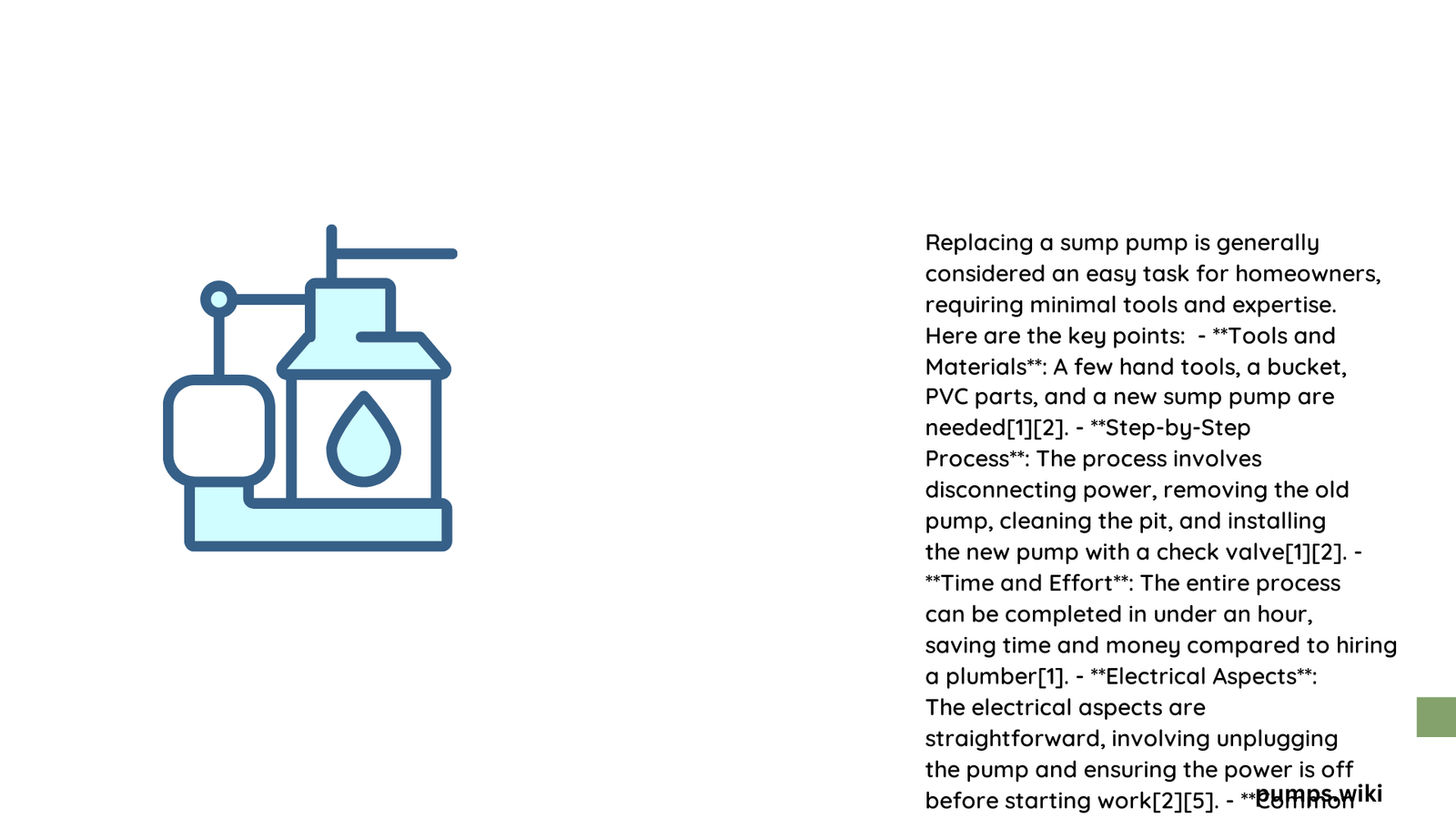Replacing a sump pump can be a moderate challenge for homeowners with basic DIY skills. While not an impossible task, it requires technical knowledge, specific tools, and careful execution. Homeowners must assess their comfort level with electrical and plumbing work, understand the system’s complexity, and be prepared for potential complications during the replacement process.
What Skills Do You Need to Replace a Sump Pump?
Skill Level Assessment
Sump pump replacement demands a nuanced skill set:
| Skill Level | Complexity | Recommended Experience |
|---|---|---|
| Beginner | High Risk | Not Recommended |
| Intermediate | Moderate | Preferred |
| Advanced | Low Risk | Ideal |
Key Technical Requirements
- Understanding electrical connections
- Basic plumbing knowledge
- Ability to handle precise measurements
- Comfort working in confined spaces
How Difficult Is the Actual Replacement Process?

Time Investment
The replacement typically requires:
– Preparation: 30-60 minutes
– Removal of Old Pump: 45-90 minutes
– New Pump Installation: 60-120 minutes
Potential Challenges
Homeowners might encounter:
1. Tight workspace in sump pit
2. Complex electrical connections
3. Potential water management issues
4. Precise alignment requirements
What Tools Will You Need?
Essential tools include:
– Adjustable wrench
– PVC pipe cutter
– Voltage tester
– Channel-type pliers
– Teflon tape
– Wet/dry shop vacuum
– Safety gloves and glasses
What Are the Cost Considerations?
Replacement Expense Breakdown
- Sump Pump Cost: $100 – $500
- Professional Labor: $200 – $500
- Total Project Cost: $300 – $1,000
When Should You Consider Professional Help?
Red Flags for DIY Replacement
- No prior plumbing experience
- Complex basement drainage system
- Significant electrical work required
- Limited time for project completion
Professional Advantages
- Guaranteed workmanship
- Proper installation
- Potential warranty coverage
- Reduced personal risk
Pro Tips for Successful Replacement
Preparation Strategies
- Thoroughly research your specific pump model
- Take detailed measurements before removal
- Photograph existing setup for reference
- Ensure proper drainage slope
- Test new pump immediately after installation
Common Mistakes to Avoid
- Rushing the installation process
- Neglecting electrical safety protocols
- Improper pipe connections
- Inadequate waterproofing
Final Recommendation
While replacing a sump pump is possible for skilled DIY enthusiasts, it’s not universally easy. Homeowners should honestly assess their technical abilities, available time, and comfort level with complex home maintenance tasks.
Recommendation Scale:
– Technical Novice: Hire Professional
– Intermediate DIY Expert: Attempt with Caution
– Advanced Home Maintenance Specialist: Proceed Confidently
References:
– HomeAdvisor Sump Pump Replacement Guide
– Plumbing Basics for Sump Pump Installation
– Basement Waterproofing Techniques
